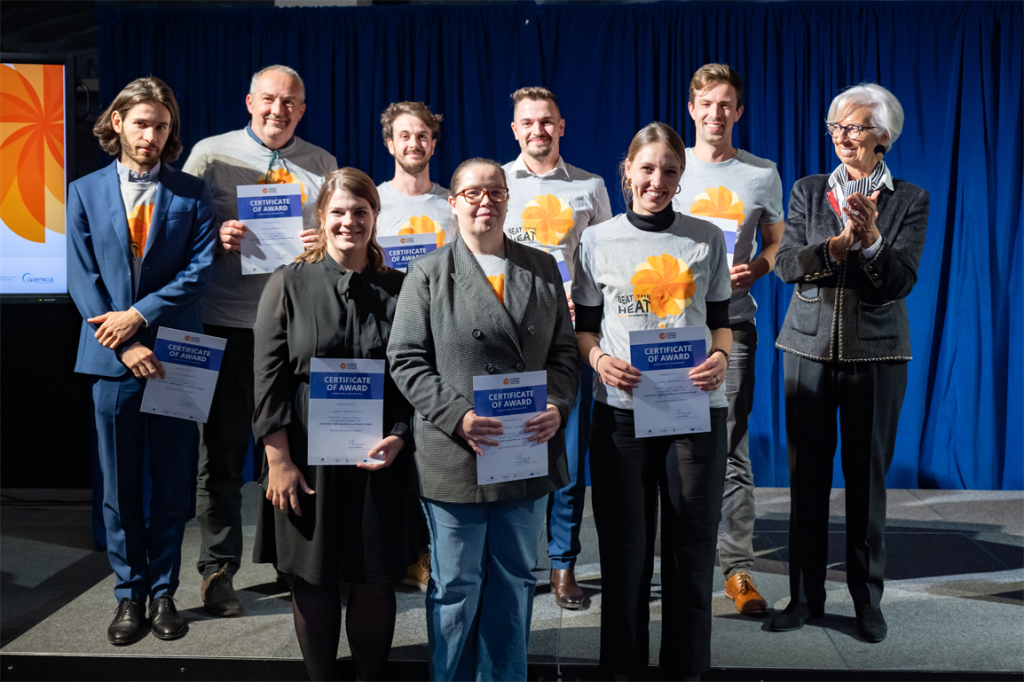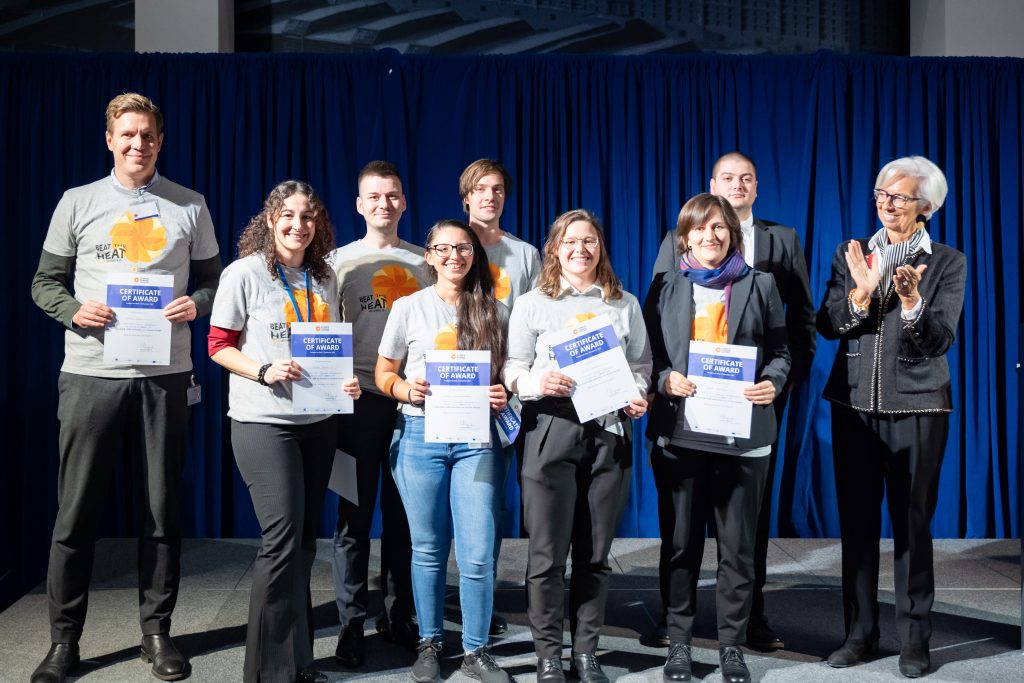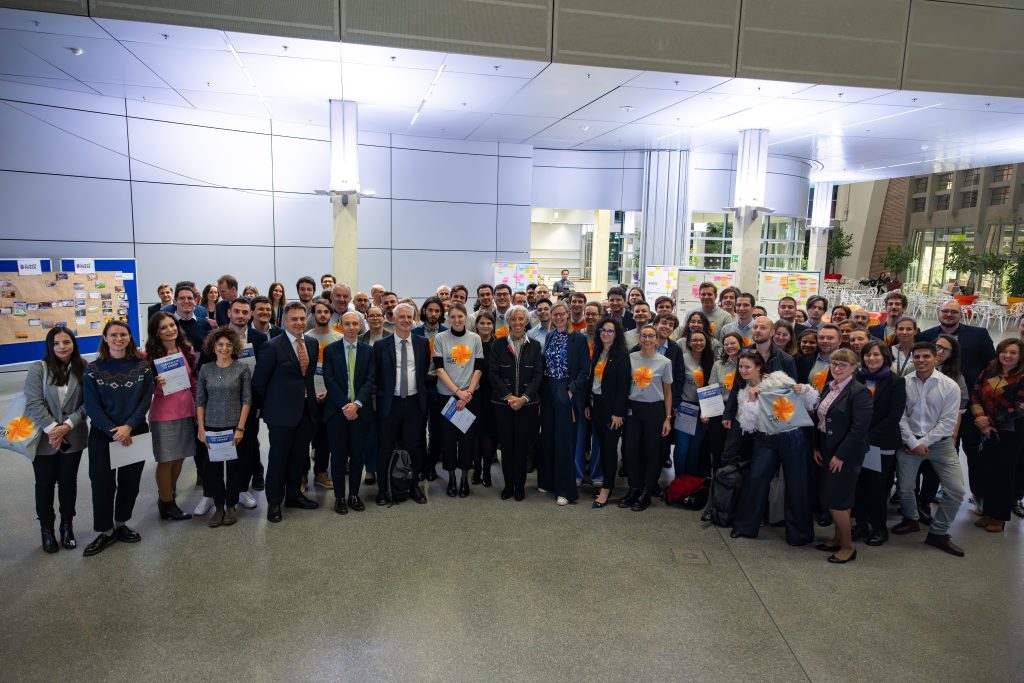ClimateChange Challenge – Frankfurt 2023
“Beat the heat with cool insights!” is the first ESCB/SSM hackathon focused on climate change. Around 80 participants and mentors from 26 institutions, including the National Bank of Slovakia, attended the event in Frankfurt, bringing diverse talents in climate science, data science, computer science, macro and micro prudential risk, law and economics.
Eight ESCB/SSM teams worked continuously for 24 hours on 14-15 November to develop forecast models on the impact of drought and heat waves on the economy. After presenting their results to a jury chaired by Irene Heemskerk, Head of the Climate Change Centre, the three teams took to the stage to receive their prize from ECB President Christine Lagarde on 16 November.
Representatives from the Statistics Department of the National Bank of Slovakia excelled at the hackathon, winning the first two places. The first place went to the Climate Challengers team, led by Michal Volešíni, followed by the Desert Sailors team with Šimon Dedinský, who won second place.
The aim of the hackathon was to analyse climate change affecting our daily lives and economic factors (e.g. the impact of droughts and heatwaves and their effect on food price increases and changes in natural conditions.
The challenge, was to explain and predict the Gross Value Added (GVA) per person employed in the regional sector, taking into account climate variables such as the frequency and intensity of droughts and heat waves.
By analysing climate data, it was shown how heat and drought indicators can affect economic variables in sectors such as agriculture and manufacturing. Correlations between variables were examined using correlograms and linear regressions. For each of the two sectors (agriculture and manufacturing), a Machine Learning approach was used and specifically XGBoost (eXtreme Gradient Boosting), which is a machine learning technique that incrementally builds models (usually decision trees) where each new model tries to correct the errors of the previous one. XGBoost improves on this process by using a more sophisticated algorithm for optimization.
The hackathon helped to conclude that the financial sector needs to be able to quantify physical climate-related risks (for example, in the areas of agriculture and manufacturing) and understand their impact on financial risk assessment.
Micro-prudential and macro-prudential regulation tools (SyRB, BBM, concentration thresholds, application of ESG policies, …) can be used to enhance systemic resilience.
Accelerating the transition to a sustainable and resilient economy can be achieved with concrete proposals:
- In agriculture: diversification of water sources, early warning systems, insurance and risk pricing.
- In the manufacturing industry: climate resilient supply chains, inventory management, circular economy.
Climate extremes such as heat waves, droughts, floods, forest fires and wind storms can negatively affect human well-being, various economic sectors and assets. Climate change is expected to bring more frequent and intense extremes, increasing risks to society and the economy. Therefore, a better understanding of climate extremes and their impacts on non-financial businesses is essential for better climate risk assessment for financial institutions.
The results of this hackathon have helped to improve the understanding of climate extremes and their impact on two sectors of the economy (agricultural and industrial sectors). The results and the models developed by the competition teams will be published in the coming days on the Banque de France website. The ClimateChange Centre and the European Commission (Copernicus Programme) will work further with the teams on these results.


